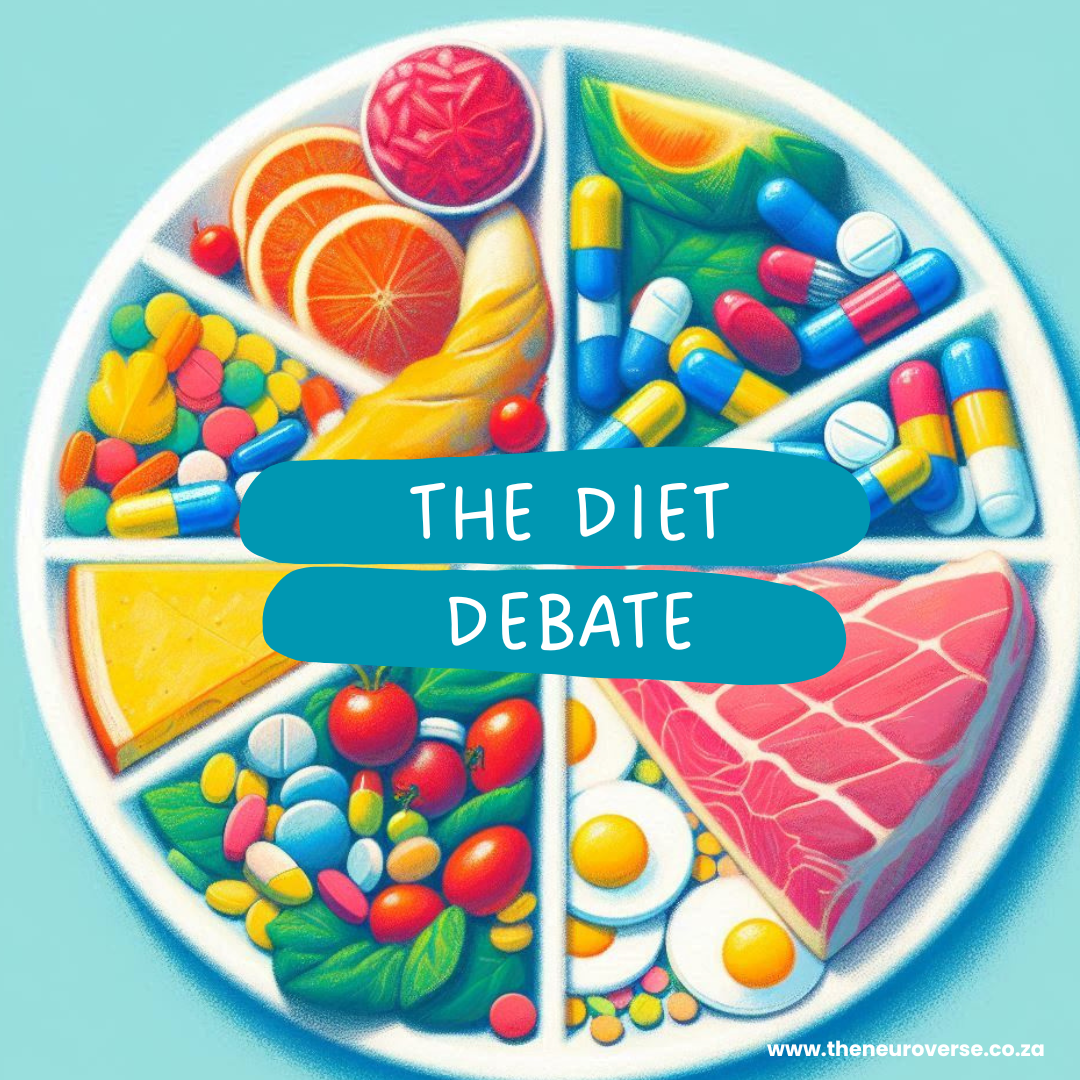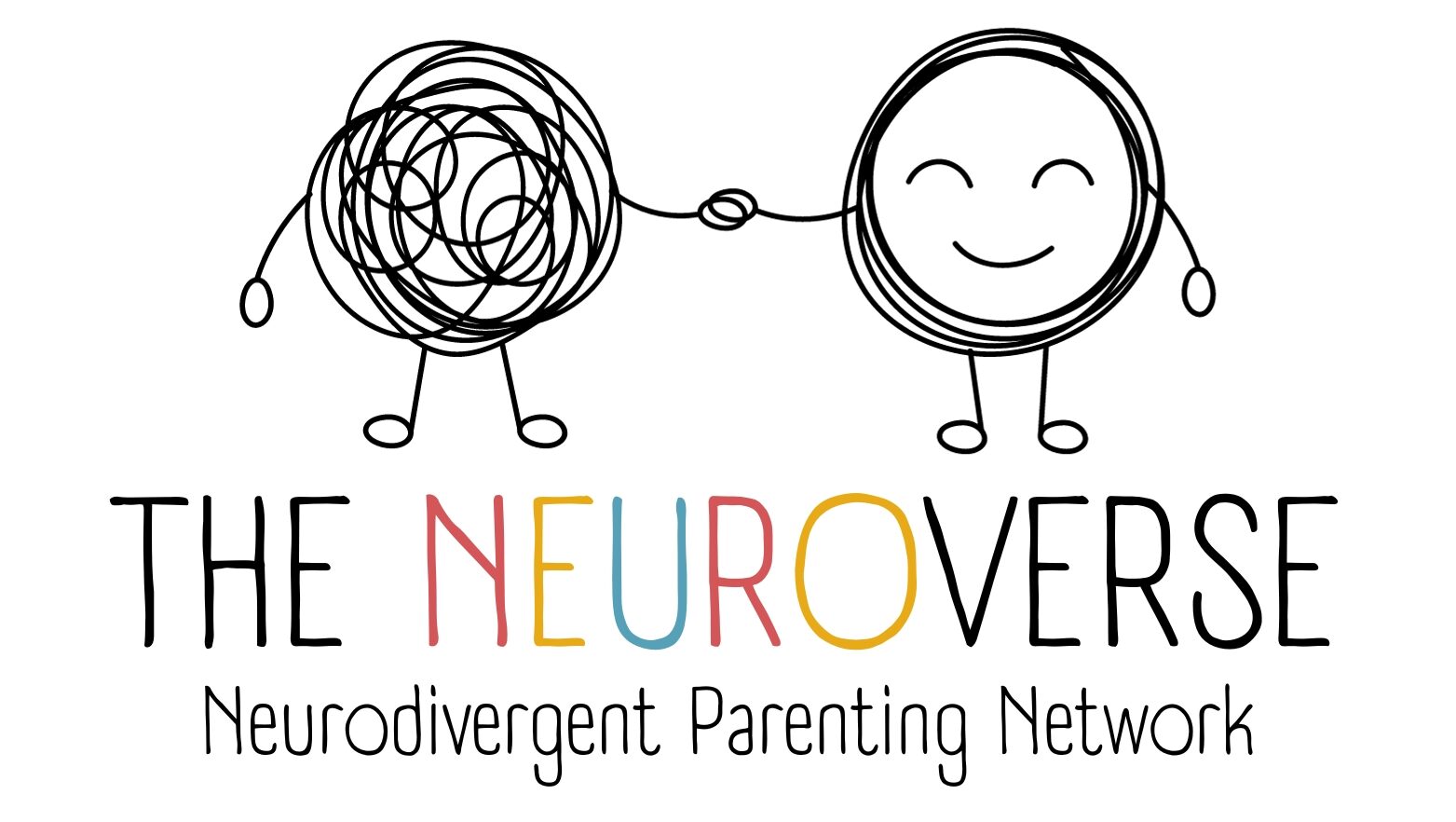The Neurodivergent Diet Debate

Parenting a neurodivergent child often involves navigating a maze of information. As parents we tend to try EVERYTHING to help our child, and this often includes following specialised eating regimes and suggested diet plans
From elimination diets to supplements, many parents explore dietary changes in the hope of easing their child’s challenges—whether that’s sensory processing issues, ADHD symptoms, or ARFID (Avoidant/Restrictive Food Intake Disorder).
Note: please consult a paediatrician or dietician before trying a new diet for your child. This article is for informative purposes only.
But with so many claims and so much conflicting advice, what’s actually worth trying in 2025
1. Elimination Diets: Still Controversial but Worth Considering
Elimination diets like gluten-free, casein-free (GFCF) have long been discussed in autism communities. While scientific evidence remains inconclusive, some families report positive changes in behaviour, focus, or gastrointestinal health after removing specific foods. Let’s face it, being healthy and having good gut health is good for everyone and can have an enormous positive impact on both neurotypical and neurodivergent kids.
What to consider:
- Consult a professional: Always work with a paediatrician or dietitian before starting an elimination diet to ensure your child still gets essential nutrients.
- Track the impact: Keep a food journal to document any changes in mood, behaviour, or digestion.
- Set realistic expectations: Dietary changes won’t “fix” neurodivergence but may address specific issues like gut discomfort or sensitivities.
2. Supplements and Nutritional Gaps
Parents frequently turn to supplements and herbal remedies like omega-3 fatty acids, magnesium, or probiotics to support brain health, reduce anxiety, or improve sleep. Emerging research suggests that certain nutrients could play a role in supporting neurodivergent kids, but not all supplements are created equal.
What’s new in 2025:
- Customised approaches: DNA testing and blood panels are helping parents identify specific deficiencies, leading to more tailored supplement regimens.
- The rise of nootropics: Cognitive-enhancing supplements are gaining popularity but should be used with caution and under medical supervision.
- Evidence-based choices: Studies continue to support omega-3s (especially DHA) for ADHD and magnesium for calming effects.
- Chlorophyll as a natural detoxifier: Some parents have started incorporating chlorophyll supplements or chlorophyll-rich foods (like spinach and spirulina) into their children’s diets, believing they support gut health and reduce inflammation. While research on its benefits for neurodivergence is limited, chlorophyll is generally safe in moderate amounts.
3. Managing ARFID: Meeting Kids Where They Are
For children with ARFID, “eat your veggies” is often an impossible task. Extreme food aversions and sensory sensitivities make it crucial to approach nutrition creatively.
Strategies that work:
- Neutralise pressure: Avoid making meals a battleground. Gentle exposure therapy with new foods often yields better results than forcing changes.
- Sneaky nutrition: Blending fruits and vegetables into smoothies or sauces can help boost nutrient intake without triggering aversions.
- Embrace variety—on their terms: Offer options they already like but in different forms (e.g., waffle-shaped potatoes instead of fries).
4. Fad Diets and Their Risks
Numerous diet trends claim to benefit neurodivergent kids, but many lack scientific backing. Some of the most popular include:
- Ketogenic Diet: Originally designed for epilepsy, some parents try it for ADHD or autism. While some studies suggest cognitive benefits, it’s highly restrictive and may cause nutrient deficiencies.
- Low-FODMAP Diet: Meant for gut issues, this diet eliminates fermentable carbs that could exacerbate digestive problems. However, it’s challenging for kids to follow long-term.
- Paleo & Whole30: These “clean eating” approaches eliminate processed foods but may be impractical for kids with sensory issues or ARFID.
- Carnivore Diet: Some claim a meat-only diet reduces inflammation, but it lacks fibre and essential nutrients, raising major health concerns.
- Non-GMO and Organic Diets: Some parents opt to remove genetically modified organisms (GMOs) from their child’s diet due to concerns about pesticides, artificial additives, and potential gut health effects. While eating organic can reduce exposure to certain chemicals, there is little direct evidence linking GMOs to neurodivergent symptoms. Additionally, this diet can be costly and difficult to sustain.
- Eliminating Sugar and Food Colourants: Research on sugar and neurodivergence remains inconclusive. While some studies suggest that excessive sugar intake may contribute to hyperactivity in children with ADHD, others find no significant link. However, processed sugars can contribute to energy spikes and crashes, affecting mood and concentration. Additionally, artificial food colourants (such as Red 40 and Yellow 5) have been linked to increased hyperactivity and behavioural issues in some children, leading some parents to remove them from their child’s diet. The UK government has placed restrictions on certain food dyes, reflecting ongoing concerns about their potential effects.
What to watch out for:
- Nutrient deficiencies: Highly restrictive diets can lead to missing out on essential vitamins and minerals.
- Increased stress: Rigid diet rules can create anxiety around food, especially for neurodivergent children who already struggle with eating challenges.
- Lack of long-term studies: Most fad diets haven’t been studied extensively in neurodivergent populations.
5. Key Takeaways for Parents
- There’s no one-size-fits-all solution: Every neurodivergent child is unique, and dietary changes may or may not be helpful depending on their specific needs.
- Prioritise enjoyment and relationship with food: A healthy relationship with food matters more than adhering to strict rules.
- Professional guidance is crucial: Whether you’re considering supplements, elimination diets, or new trends, consulting with a qualified professional is the best way to ensure your child’s nutritional needs are met safely.
In the end, the goal isn’t perfection but progress. Small, thoughtful changes can sometimes make a big difference for neurodivergent kids and their families. By staying informed and keeping the focus on your child’s well-being, you can navigate the neurodivergent diet debate with confidence.
References
- Whiteley, P. et al. (2023). ‘Dietary Interventions in Autism Spectrum Disorder: An Updated Review’, Journal of Paediatric Nutrition, 42(3), pp. 215–230.
- Richardson, A. J. et al. (2024). ‘Omega-3 Fatty Acids and Neurodevelopmental Disorders: A Meta-Analysis’, British Journal of Child Health, 15(2), pp. 101–118.
- Taylor, C. M. et al. (2024). ‘ARFID in Children: A Practical Approach for Parents’, UK Paediatric Journal, 18(1), pp. 45–60.
- Smith, J. et al. (2025). ‘Assessing Dietary Trends in Neurodivergent Children: A Systematic Review’, European Journal of Paediatric Health, 30(4), pp. 312–328.



Leave a Reply